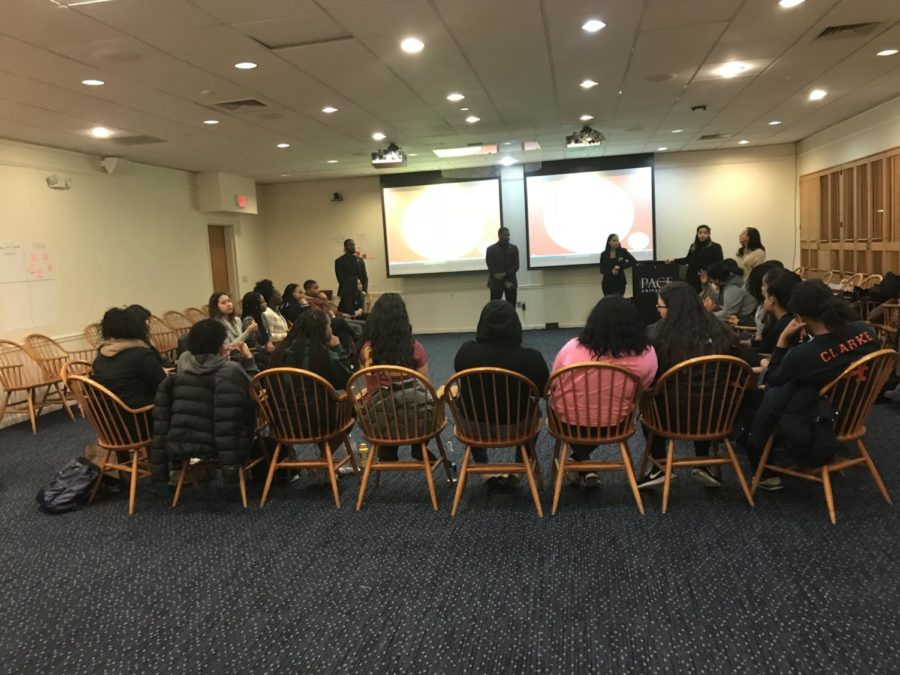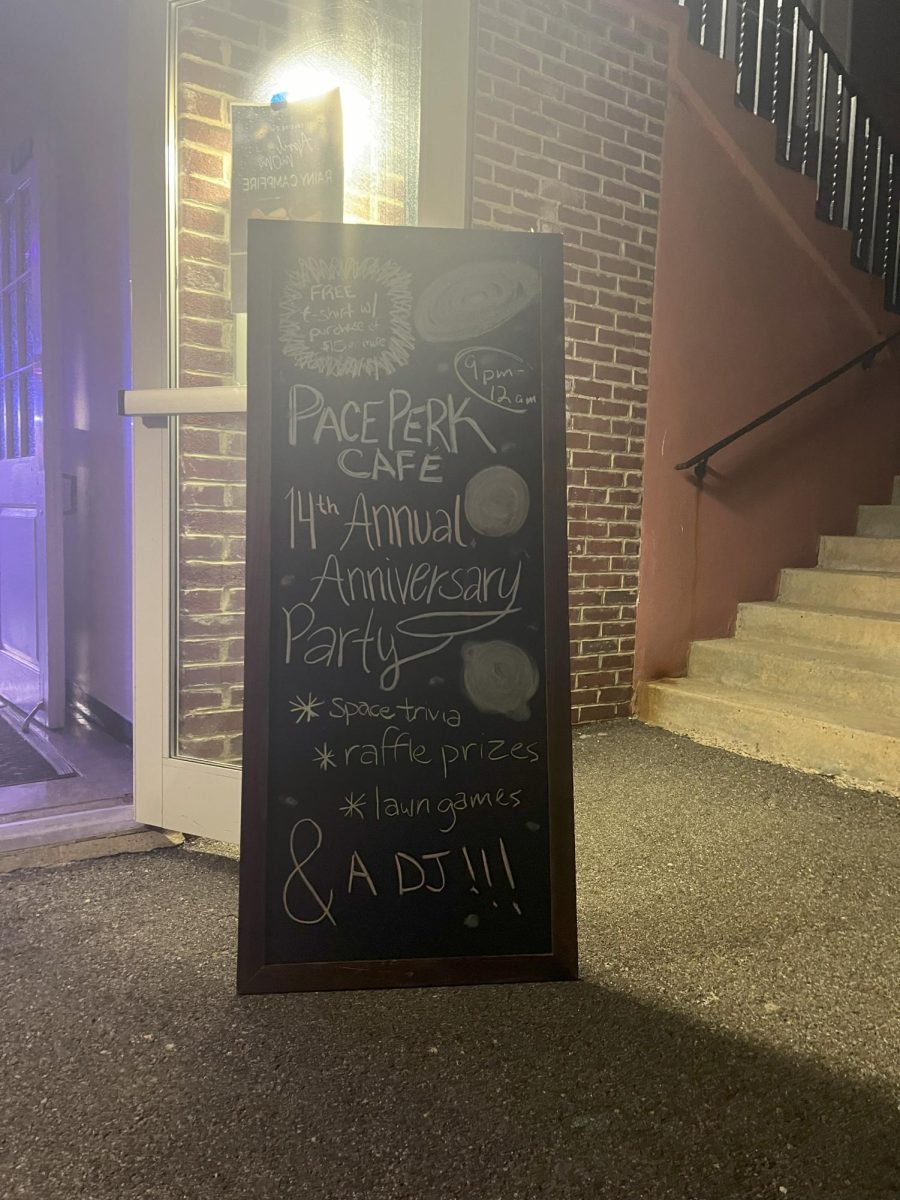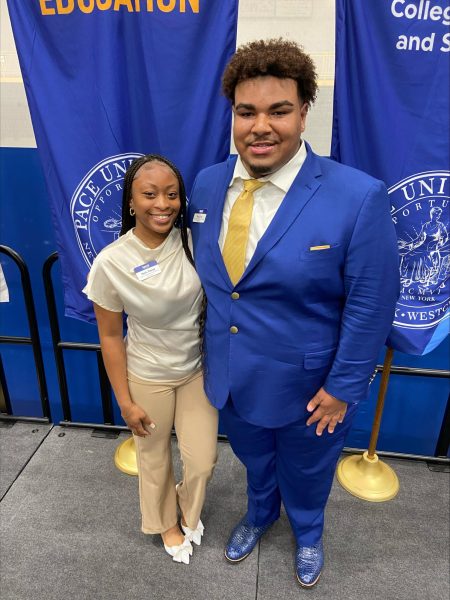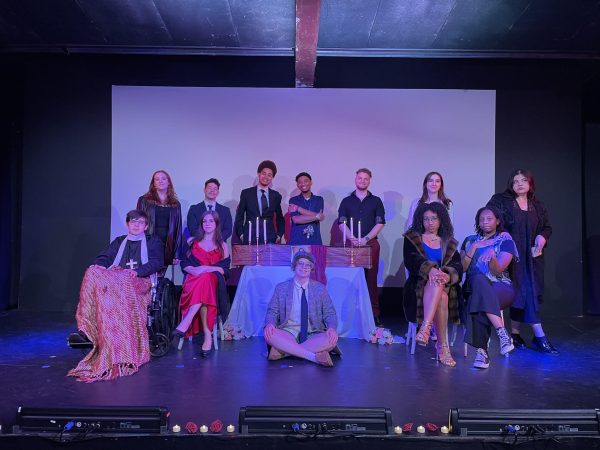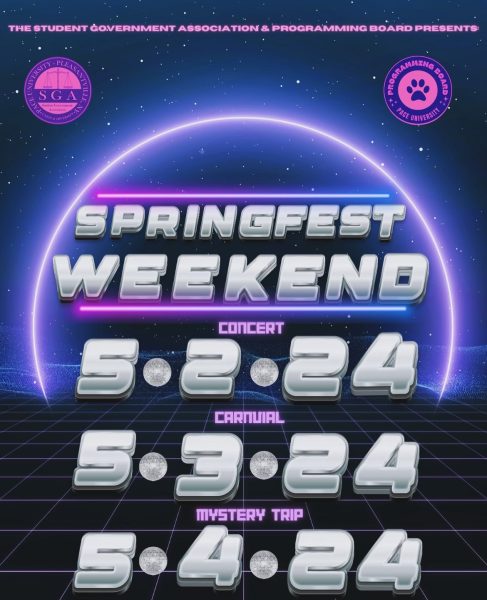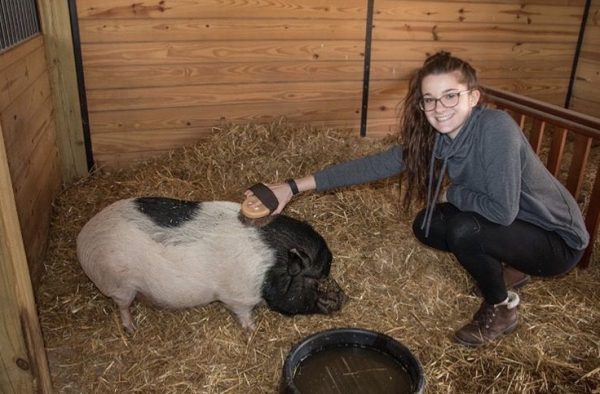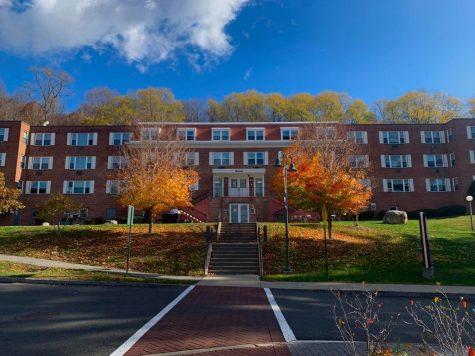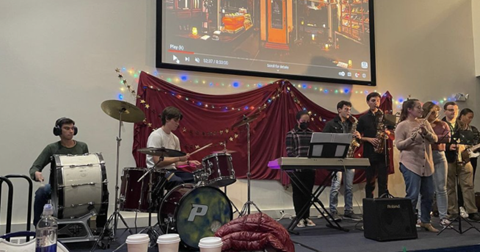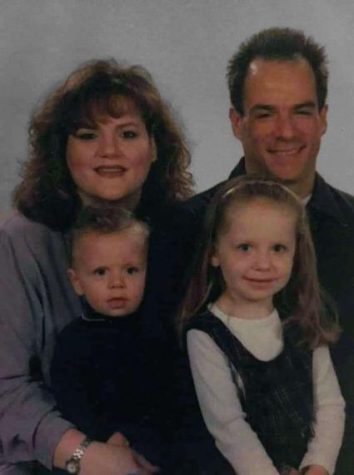SLU’s “Stop the Stigma” Creates Safe Space for Discussion on Mental Disabilities
Students gathered in Kessel on Tuesday evening to discuss the negative stigmas surrounding mental disabilities.
March 24, 2018
Pace University’s Pleasantville campus had the first event of its kind on Tuesday night in Kessel’s Butcher Suite; a student-led discussion on the stigmas surrounding the most common mental disabilities, entitled “Stop the Stigma.”
The event was co-hosted by Greek organizations Sigma Lambda Upsilon sorority and Kappa Alpha Psi fraternity and had about 30 students in attendance.
To begin, students were put into groups of seven, and each group was asked to write down what they thought were the biggest stigmas surrounding four mental disabilities. The disabilities were Anxiety, Depression, Bipolar Disorder, and Schizophrenia.
Some of the main stigmas that students identified included phrases like: “Every time I see you, you always look so depressed,” “you seem like a crazy person when you’re talking to yourself,” “someone’s having a bad day,” and “I’m about to have an anxiety attack.”
After writing down stigmas, members of the fraternity and sorority educated students on the truth about the mental disabilities in ways which students could relate to.
To help them see what a real panic attack feels like, for example, one member of Kappa Alpha Psi compared it to how someone feels after being in a car crash—increased heart rate and [possibly] mentally freezing.
After mentioning some surprising statistics about each disability, students got to share their personal feelings about them, why they felt like so many stigmas surround them, and some even shared a personal story about them or someone that they love having to deal with those disabilities.
“Through having these discussions, I hope that students learned about the stigmas and how they can help people deal with their mental disabilities,” said Renee Glover, vice president of Sigma Lambda Upsilon and Pace senior.
After the discussions about specific mental disabilities, students got to speak about some barriers of getting proper access for treatment of mental disabilities. One of the biggest ones that was spoken about was religion; how a lot of religious families are reluctant to go to professionals for treatment and instead think that they can “pray the condition out” of the person.
A video was shown emphasizing the difficulty people, specifically members of minority groups, have getting the proper help for mental disabilities, especially in the U.S.
By the end of the night, many of the negative connotations that students affiliated with mental disorders were eliminated.
“The most important thing I learned at this event was about the different types of mental disabilities, and how we should never label people without knowing their background,” said Aaliyah Shirley, Pace junior.
Shirley said that the event helped her look at mental disorders and those affected by them differently.
“The most important thing that I learned from this event was all the stigmas and stereotypes of mental illness,” said Julian Alston, Pace senior. “Mental illness goes much deeper than I initially thought.”

